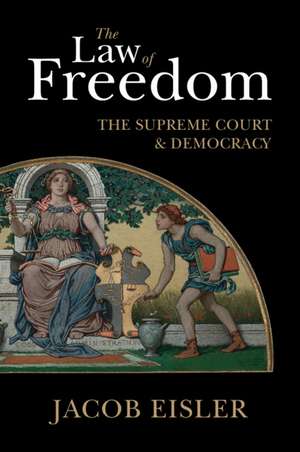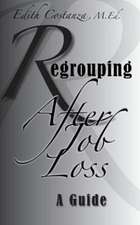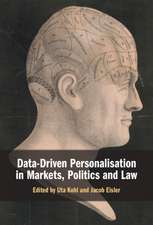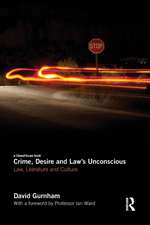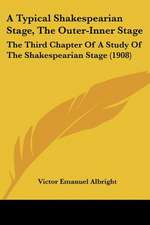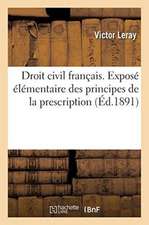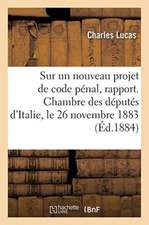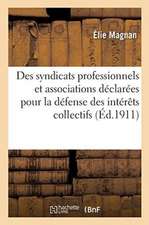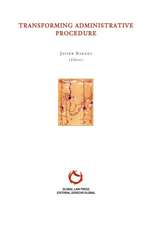The Law of Freedom: The Supreme Court and Democracy
Autor Jacob Eisleren Limba Engleză Paperback – 19 iul 2023
| Toate formatele și edițiile | Preț | Express |
|---|---|---|
| Paperback (1) | 270.25 lei 6-8 săpt. | |
| Cambridge University Press – 19 iul 2023 | 270.25 lei 6-8 săpt. | |
| Hardback (1) | 642.35 lei 6-8 săpt. | |
| Cambridge University Press – 19 iul 2023 | 642.35 lei 6-8 săpt. |
Preț: 270.25 lei
Nou
Puncte Express: 405
Preț estimativ în valută:
51.71€ • 54.24$ • 43.05£
51.71€ • 54.24$ • 43.05£
Carte tipărită la comandă
Livrare economică 01-15 aprilie
Preluare comenzi: 021 569.72.76
Specificații
ISBN-13: 9781108412247
ISBN-10: 1108412246
Pagini: 300
Dimensiuni: 152 x 230 x 19 mm
Greutate: 0.46 kg
Editura: Cambridge University Press
Colecția Cambridge University Press
Locul publicării:New York, United States
ISBN-10: 1108412246
Pagini: 300
Dimensiuni: 152 x 230 x 19 mm
Greutate: 0.46 kg
Editura: Cambridge University Press
Colecția Cambridge University Press
Locul publicării:New York, United States
Cuprins
Introduction; 1. The counterpopular dilemma; 2. Constitutionalism and the counterpopular dilemma; 3. Traversing the dilemma: normative struggle over freedom; 4. One-person one-vote: the triumph of minimal procedural equality; 5. Campaign finance: contesting voters' cognitive capacities; 6. Parties in democracy: facilitators or usurpers of popular self-rule?; 7. Race and elections: equality of access or equality of power?; Conclusion: the debate over liberalism, the partisan alternative, and the future of election law.
Recenzii
'In this powerfully argued and beautifully clear work, Jacob Eisler gives us a framework for understanding a dilemma at the core of modern liberal democracy. Though the 'counter-majoritarian difficulty' is familiar, Eisler introduces the more troubling 'counterpopular dilemma': how can courts police democratic processes. Through a careful exposition of the ideals of election law in light of the principles of democracy, Eisler provides an essential guide to making courts safe for democracy. More importantly, he gives us a map for remaking a democracy that might live up to its ideals.' Lawrence Lessig, Harvard Law School
'Election law has long ignored a question that should be at its core: Why should unaccountable judges – not the regular political process – decide the kind of democracy we live in? This sophisticated book, grounded in both democratic theory and legal doctrine, finally focuses on judicial review of electoral regulation. Its persuasive claim is that courts' role in this area must be forever unsettled, always grappling with disputes among different theories of liberty and equality but never definitely resolving them.' Nicholas Stephanopoulos, Harvard Law School
'Eisler draws on important doctrines in the the philosophy literature to inform what had been an intractable debate about the legitimacy of judicial review over the democratic process. The book is a must read for anyone seeking a theoretically sound justification for why the interests of the people must be paramount when courts resolve questions implicating democratic design, rights, and governance.' Franita Tolson, University of Southern California Gould School of Law
'Election law has long ignored a question that should be at its core: Why should unaccountable judges – not the regular political process – decide the kind of democracy we live in? This sophisticated book, grounded in both democratic theory and legal doctrine, finally focuses on judicial review of electoral regulation. Its persuasive claim is that courts' role in this area must be forever unsettled, always grappling with disputes among different theories of liberty and equality but never definitely resolving them.' Nicholas Stephanopoulos, Harvard Law School
'Eisler draws on important doctrines in the the philosophy literature to inform what had been an intractable debate about the legitimacy of judicial review over the democratic process. The book is a must read for anyone seeking a theoretically sound justification for why the interests of the people must be paramount when courts resolve questions implicating democratic design, rights, and governance.' Franita Tolson, University of Southern California Gould School of Law
Notă biografică
Descriere
Examines election case law to demonstrate and assess how the Supreme Court has radically transformed American democracy.
